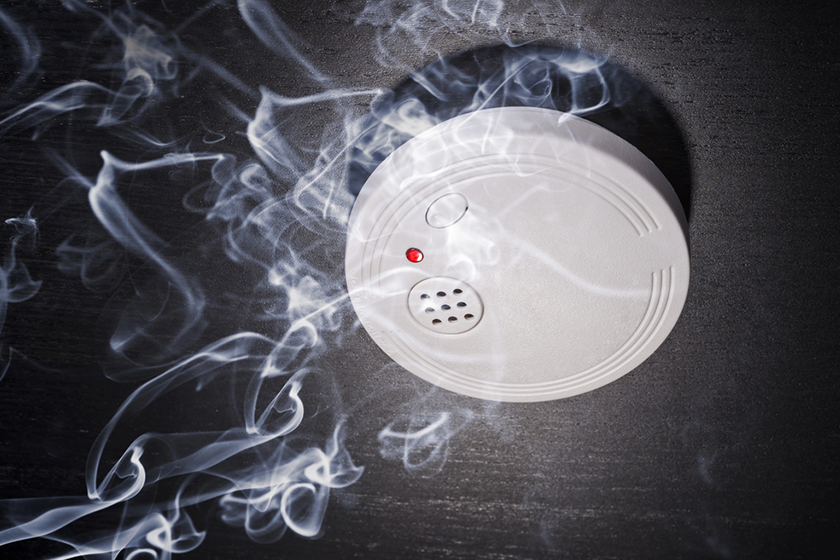5 Kitchen Fire Safety Tips You Need To Know

In any household or commercial kitchen, safety should always be a top priority, and knowing a few kitchen fire safety tips is helpful. The kitchen is one of the most common areas in a home where fires start, and with the presence of heat sources, oils, and electrical equipment, the risk is considerable.
Taking proper fire safety precautions can help protect both your property and the people you care about. Here, we’ll go over key fire safety strategies and best practices to reduce the risk of kitchen fires, as well as how fire alarm services and other safety measures can play a big part in keeping your kitchen safe.
Be Aware of Common Kitchen Fire Hazards
The first step in kitchen fire safety is identifying common fire hazards. The kitchen has many components that could become a fire source if mishandled. Unattended cooking, especially frying with oil, is one of the leading causes of kitchen fires.
Electrical appliances, like toasters, microwaves, and stovetops, can overheat or malfunction and cause fires. It’s also important to be mindful of combustibles like paper towels, oven mitts, or even dishcloths that might come into contact with a flame.
Crumbs, oil, and other food debris can pose a fire hazard, especially if they fall into toaster ovens or under stove burners. Regular cleaning can help prevent these potential fire risks and make sure that your kitchen remains as safe as possible.
By knowing what items or actions pose the biggest risk, you can make the best possible decisions about how to reduce them. For example, always keep flammable items away from heat sources, never leave cooking food unattended, and make sure electrical appliances are properly maintained and in good working condition.
Install and Maintain Fire Safety Equipment
Installing the appropriate fire safety equipment in the kitchen is one of the best kitchen fire safety tips. This includes making certain that a fire extinguisher is easily accessible. You should have a Class K fire extinguisher for kitchen fires as it is specifically designed to handle grease fires, which are common in cooking environments.
It is also important to regularly maintain and test your fire alarm services. A properly functioning smoke alarm in the kitchen and surrounding areas can provide early warnings of a fire and give you enough time to evacuate.
While it’s imperative not to disable or remove smoke detectors (even if they may frequently go off while cooking), you should make sure they are correctly installed and maintained, ideally within 10 feet of the kitchen.
Also, make sure your fire alarm system has been professionally installed by experts like those from an EST partnership (Edwards Systems Technology), so it combines smoothly with your home’s or building’s emergency response systems.
Know How to Handle a Grease Fire
A grease fire is one of the most dangerous types of fire that can occur in the kitchen. If not handled properly, it can spread rapidly and cause severe damage. If a grease fire starts, do not try to extinguish it with water—this will only make the fire worse.
Instead, cover the fire with a metal lid or a cookie sheet to smother it, cutting off its oxygen supply. If you cannot control the fire with a lid, use a Class K fire extinguisher.
Knowing how to handle grease fires and being prepared with the right tools will help prevent the fire from spreading and causing more damage. Make sure that fire extinguishers are easily accessible in the kitchen, and make sure everyone in your home or workplace knows how to use them.
Regularly Check and Maintain Appliances
Another important tip for fire safety in the kitchen is to routinely check your appliances for safety. Whether it’s your stove, oven, or toaster, keeping these devices in good working order is essential for minimizing fire risks.
Have a professional check your appliances periodically and be sure to follow the manufacturer’s guidelines for regular maintenance. Pay attention to cords, plugs, and electrical connections, so that they are in good condition and free from damage.
For example, frayed electrical cords or malfunctioning stovetop burners can easily become sources of fire if they are not repaired or replaced promptly. Routine inspection and maintenance of your kitchen appliances can prevent electrical malfunctions that lead to fire.
Create an Emergency Plan
Even with the best precautions, it’s important to be prepared in case a fire does occur. Create an emergency plan for your home or business, including escape routes and procedures for contacting emergency management and services.
Educating everyone in your household or workplace on the importance of fire safety, as well as teaching them how to safely exit the building and call for help, is imperative for minimizing harm in case of an emergency.
Make certain emergency exits are clearly marked and keep fire escapes clear of obstructions. Also, make sure all occupants are aware of the location of fire alarms, fire extinguishers, and other fire safety equipment.
Trust Fire Safety Alarms for Your Kitchen Fire Safety
At Fire Safety Alarms, our team is always available for emergency management and services, offering 24/7 support to help reduce any fire risks. We know that kitchen fires can be catastrophic, which is why we focus on offering the most advanced fire alarm systems and solutions for fire prevention.
With an EST partnership and a commitment to high-quality service, we make sure your fire alarm systems are always operating at peak performance.
If you need assistance with your fire alarm services or have any concerns about fire safety in your kitchen, please don’t hesitate to reach out. We’re here to see that your kitchen remains safe, secure, and free from fire hazards.
